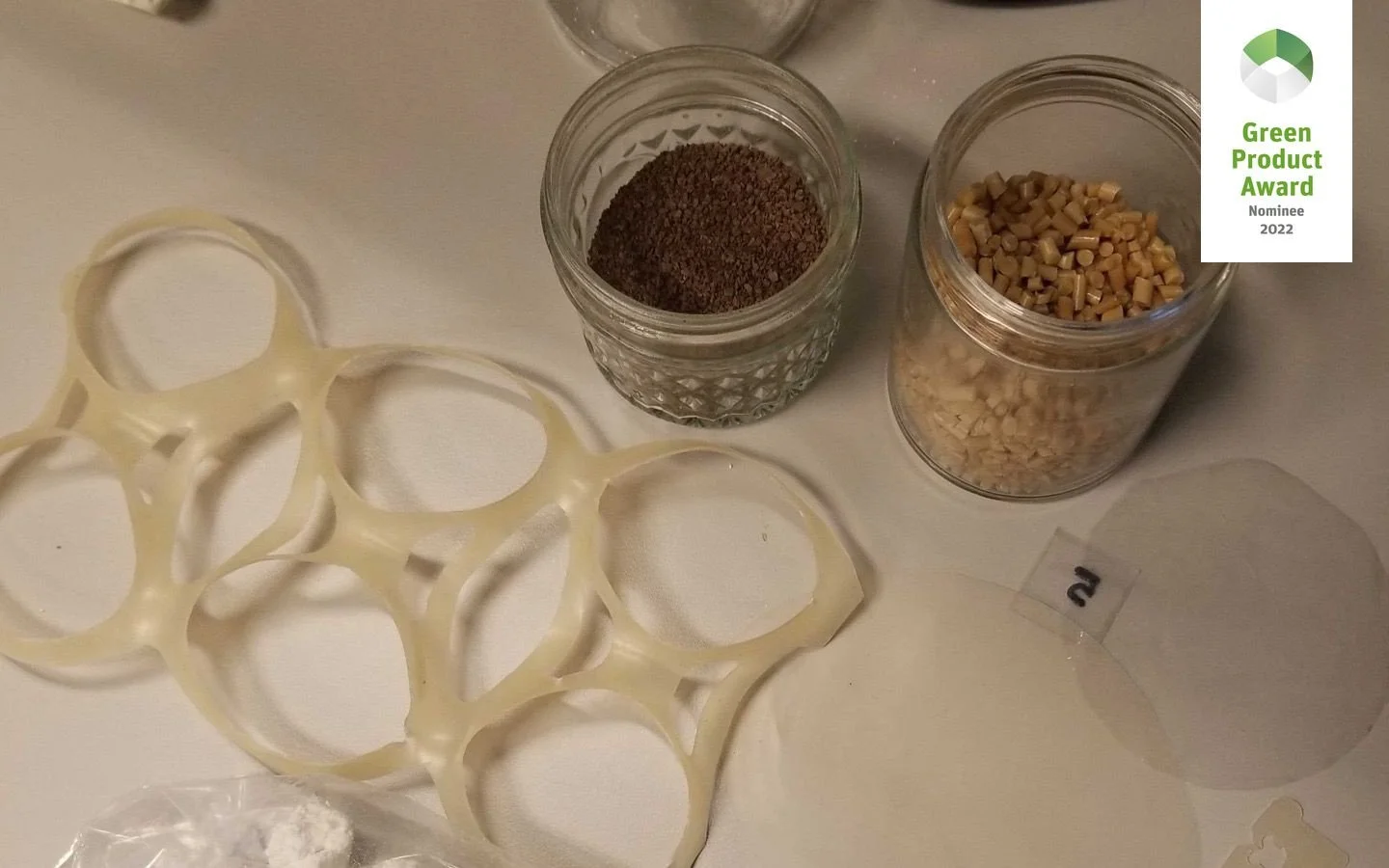Spotlight: Full Cycle Bioplastics
Dolphin Eating Plastic. (2015, January 11). National Geographic. Source
Our reliance on plastic in the 21st century is worrisome. As a society, we are well aware of the long-lasting consequences to our environment and health, but at times, it seems as if change is still far away.
Plastic has seeped its way into every aspect of our lives. From plankton to whales, plastic affects all living things and continues to be one of the most pressing issues of our time. In 2015 alone, 1.5 billion tons of plastic waste was generated; of that, nearly 12.7 millions tons end up in the ocean.
To make matters worse, food waste is also a problem. An estimated 1.4 billion tons of food is wasted every year, with organic waste being the third largest generator of greenhouse gas emissions.
We now live in a time where there are serious repercussions from our relationship with plastic. It is quite shameful to see how much plastic we consume, especially for single-use plastics that can be found covering straws, medicine packets, and even fruit in certain convenience stores!
The visionaries at Full Cycle Bio Plastics are a firm that seeks to lead a revolution against plastic. For Full Cycle, the fight starts with Full Cycle’s PHA as they call it the future of plastic. PHA is a completely biodegradable and non-toxic type of polymer that can be found within numerous microorganisms through a fermentation process. It is quite beneficial, as its characteristics are highly similar to that of petroleum-based plastics, making them a great substitute.
While Full Cycle may not be the only player in the compostable bioplastic space, their natural process stands out. By transforming mixed feedstocks into consistent and fully tailored products, they do not rely on cultivated food crops, arable land or GMO bacteria to create their products. Through this method, we can understand why food waste is just as important to them, as their upcycling of organic waste can be turned into useful, high-value products. This attitude towards waste is quite similar to ours at Topiku: an exploration of the waste by-products of one industry as the inputs to another industrial process.
At Topiku, we like to ask: “Why does trash have to look like trash?” Especially in the case of the Full Cycle: “One man’s trash is another man’s treasure.”
Full Cycle believes that the world has too much to waste, too much plastic, and unsustainable resource extraction. They understand the urgency to find alternative solutions towards our addiction to plastic. With the extra step they take in their selection of materials, it helps them achieve a low carbon alternative, true stewards of creating change.
Works Cited
Quest Impact Design Studio. (2022b, May 24). Home. PHA Technology Company | Producing a Biodegradable Alternative to Plastic | Convert Organic Waste into PHA, a Better Bioplastic |Full Cycle. https://fullcyclebio.com/
Just a moment. . . (n.d.). Science Direct. https://www.sciencedirect.com/topics/chemistry/polyhydroxyalkanoate
Original story published by The Mirror. Results from a new study. (2016, January 25). Audubon Louisiana. https://la.audubon.org/news/habitat-loss-could-spell-trouble-91-percent-migratory-birds#:%7E:text=Original%20story%20published%20by%20The,protection%20across%20their%20entire%20ranges.
Education. (n.d.). Broome Bird Observatory. http://www.broomebirdobservatory.com/education-resources



